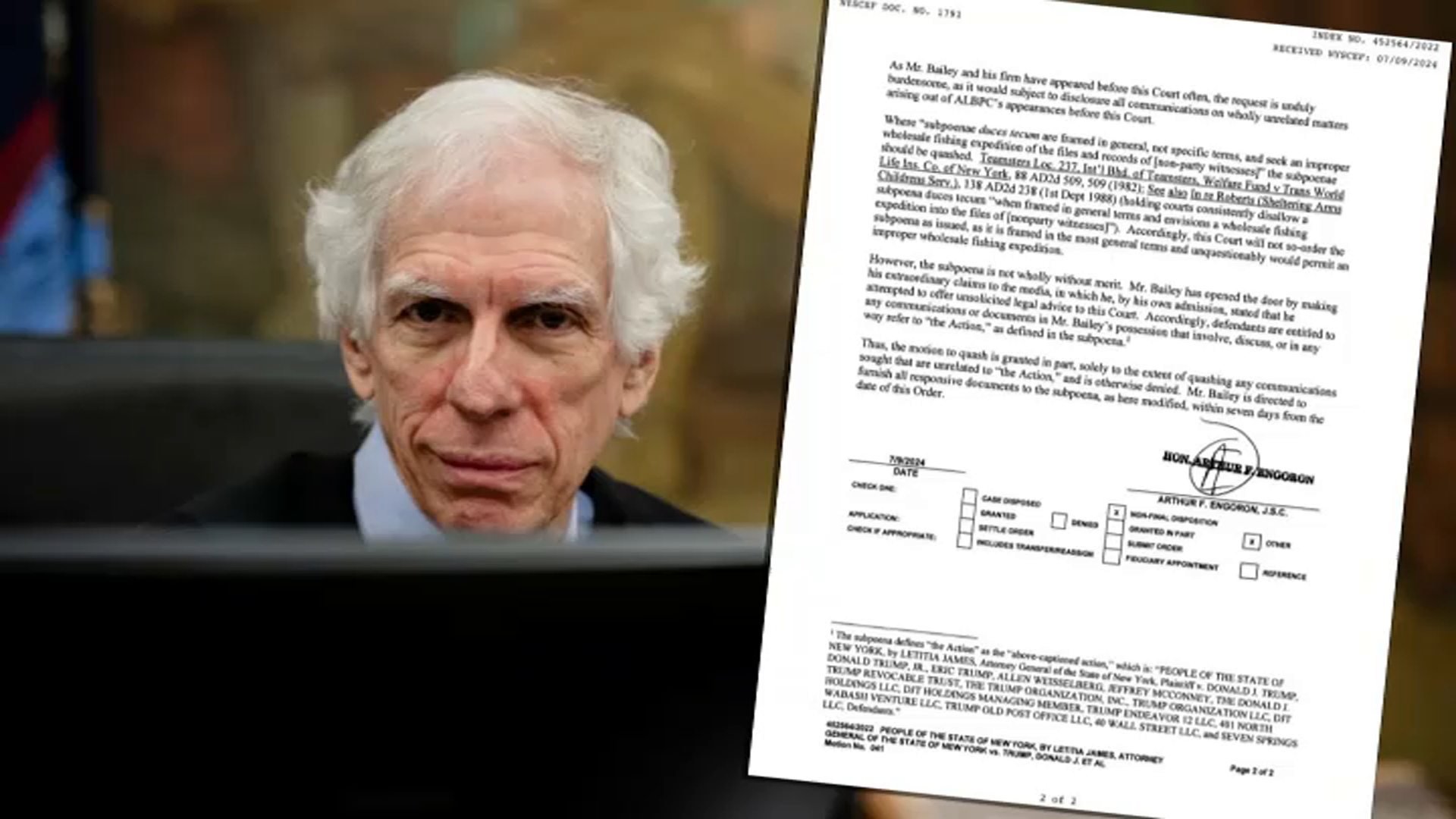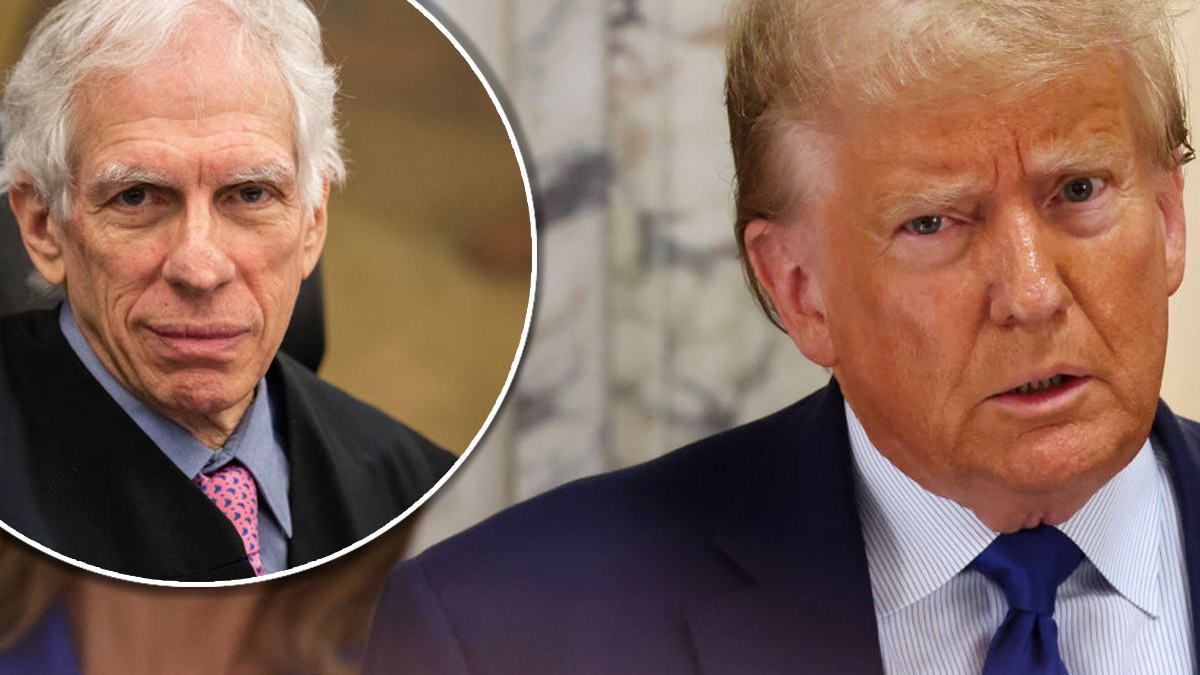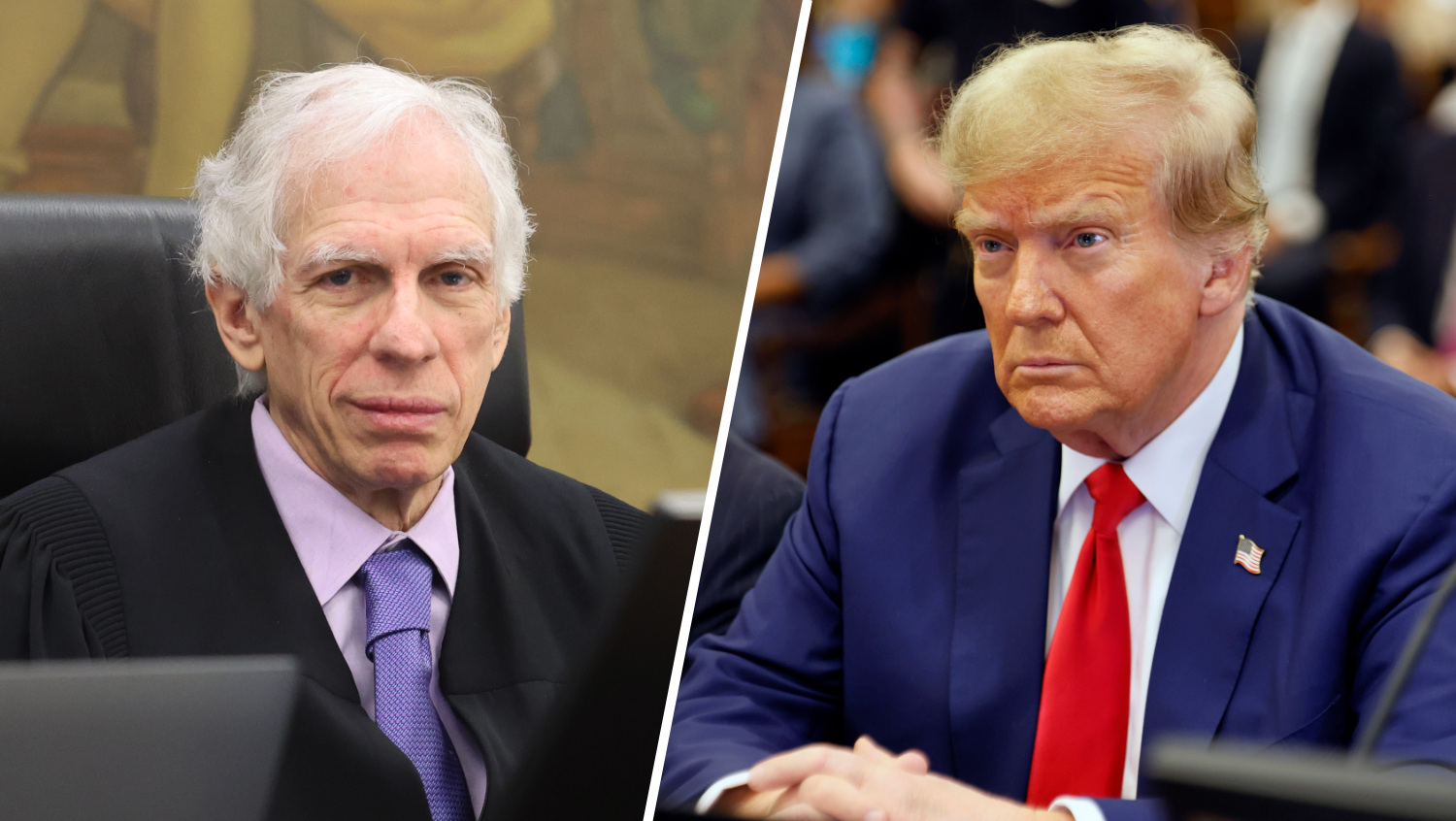The judge who ordered former President Trump to pay hundreds of millions of dollars in a civil fraud trial said he will not step down from the case, despite an accusation by Trump’s attorneys that the judge may have engaged in “prohibited communications” before rendering his decision. That accusation was based on what an attorney with no connection to the case told NBC New York, saying he spoke to the judge and tried to advise him about the law in the Trump case. Jonathan Dienst reports.
Judge Arthur Engoron said he will not recuse himself from former President Donald Trump’s civil fraud trial over questions about whether he inappropriately discussed the case with an outside lawyer.
In an eight-page ruling released Thursday, Engoron shed new light on the alleged conversation, calling his interaction with attorney Adam Leitman Bailey "a nothingburger." Engoron added the interaction had no impact on his decisions in the Trump case.
In June, Trump’s legal team asked the judge to recuse himself from the civil fraud case, citing reports by NBC New York based on sources familiar with the matter that the New York State Commission on Judicial Conduct was investigating whether Engoron had inappropriately discussed the case with attorney Bailey.
Watch NBC 4 free wherever you are
In February, Bailey told NBC New York during two separate on-the-record TV interviews that he had attempted to advise Engoron on the law surrounding the Trump civil fraud matter. Bailey told NBC New York he had shared with the judge his view that a small-time fraud law was being misused to target and shut down a major real estate company.
Get Tri-state area news delivered to your inbox with NBC New York's News Headlines newsletter.
Bailey said he explained to the judge that serious penalties and a shutdown for the Trump Organization would be bad for his clients and bad for New York business in general.
"I really want him to get this right," Bailey told NBC New York, adding that the judge had asked “a lot of questions.”
In an email to NBC New York several hours after Engoron issued his Feb. 16 penalty ruling, Bailey wrote “I guess I convinced the judge to change his mind” — a reference to the fact that the judge had reversed course and decided not to continue suspending Donald Trump’s business certificates.
In his decision Thursday, Engoron confirmed on the record for the first time that Bailey had indeed approached him inside the courthouse and offered his legal analysis of the Trump case.
“Bailey accosted and started haranguing me about Executive Law 63(12),” Engoron said in his decision.
The judge said he had been surprised by Bailey’s approach and said he made it clear to Bailey at the time that he believed he was "wrong."
“I did not initiate, welcome, encourage, engage in, or learn from, much less enjoy, Bailey’s tirade,” Engoron wrote. “I did not base any part of any of my rulings on it, as Bailey has outlandishly, mistakenly, and defamatorily claimed.”

The rules of Judicial Conduct say a judge may not permit advice from an outside expert about a pending case unless the substance of that advice is disclosed to the parties and they are given an opportunity to respond.
Some legal ethics experts and the Trump legal team have argued that on a case as consequential as the Trump civil fraud matter, it would have been prudent for Engoron to disclose to the parties any inappropriate effort by Bailey to influence him. Engoron did not make such a disclosure.
It was not until after the February penalty ruling that the judge learned through an NBC New York media inquiry that Bailey had described his version of their interaction during television interviews. Both parties to the case also said they were unaware of any interaction about their case between Engoron and Bailey until they were contacted by NBC New York.
Engoron said in his ruling Thursday there is no requirement for him to recuse himself under the circumstances. He said he believes he has discretion to decide whether he was influenced by what he called “the 90-second incident” with Bailey. The judge said he remains unbiased.
Trump attorneys and some ethics experts have argued the fact that even if a judge isn't influenced by an unauthorized interaction, it does not justify that interaction.

Engoron issued a general statement to NBC New York in February, saying he had “no ex parte conversations” about the case, but declined through a spokesman to respond to numerous follow-up questions from News 4 about the nature and duration of the alleged contact with Bailey.
Thursday, Engoron acknowledged Bailey was not just a stranger approaching him in the hallway.
“Prior to that time, I considered Bailey a professional acquaintance and a distant friend,” the judge wrote in the ruling. “His sudden appearance and vehement speech took me aback and I simply told him he was wrong. He trailed after me, still droning on, as I descended the judge’s stairs to the street level. I entered my vehicle without saying another word — except perhaps 'goodbye' — and departed.”
Judge Engoron said he had spent several years researching this particular law and “did not need a landlord-tenant lawyer ranting about it."
NBC New York has reported that Bailey was questioned under oath by the New York State Commission on Judicial Conduct about his contact with Engoron. The judge said in his ruling he is unaware of the existence of this investigation.
When contacted by NBC New York, Robert Tembeckjian, administrator of the New York State Commission on Judicial Conduct said, “No comment.”




